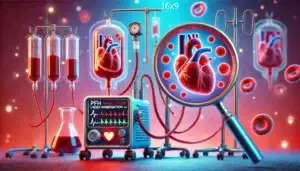
Protamine Dosing for Heparin Reversal After Cardiopulmonary Bypass: A Double-Blinded Prospective Randomized Control Trial Comparing Two StrategieS
This study compared two protamine dosing strategies for heparin reversal after cardiopulmonary bypass: a fixed 250-mg dose versus a 1:1 (1 mg:100 U heparin) ratio-based approach. The trial included 125 elective adult cardiac surgery patients. Both methods showed similar activated clotting times and postoperative bleeding, but the fixed-dose group used significantly less protamine. These results suggest fixed dosing may optimize drug conservation without compromising safety or efficacy.




